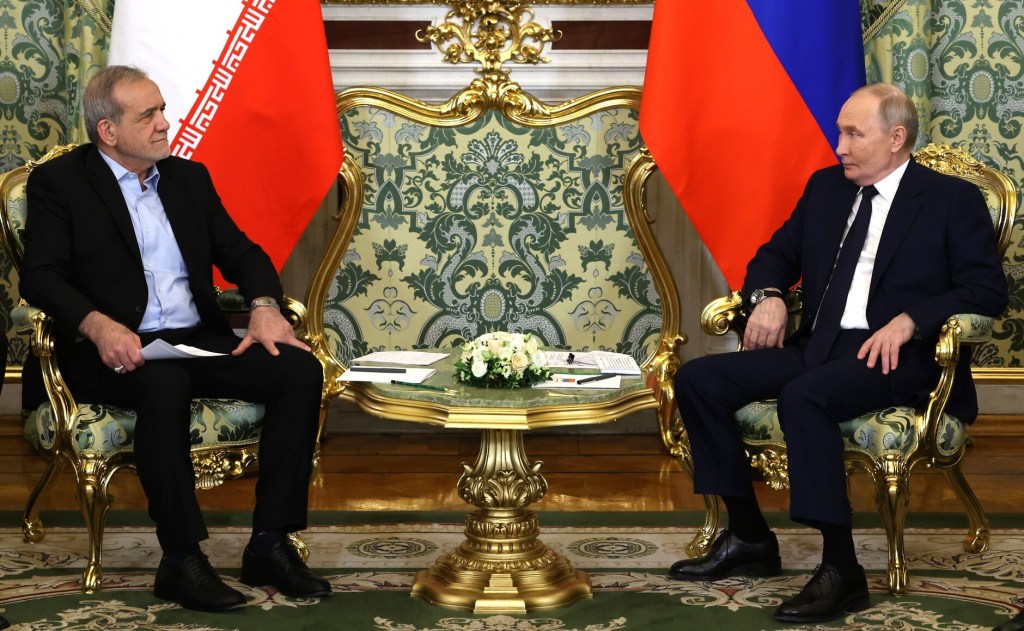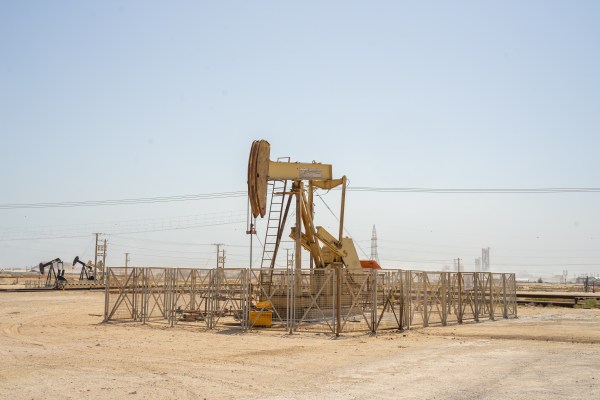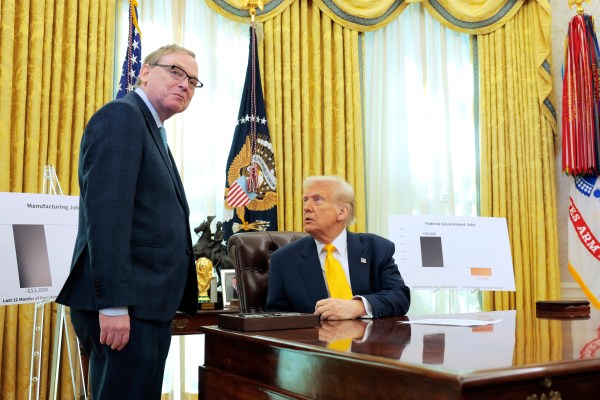Donald Trump has always positioned himself as an Iran hawk and a staunch ally of Israel. His first term saw bold departures from establishment groupthink, including killing Islamic Revolutionary Guard Corps Gen. Qassem Suleimani and forging the Abraham Accords, a historic realignment that united Israel and its Gulf Arab neighbors against the Tehran regime. But rushing headlong into misguided negotiations with Russia to end the war in Ukraine, as the Trump administration appears poised to do, risks a catastrophic unforced error: strengthening the Islamic Republic. If President Trump truly wants to bring his Iran policy full circle, ensuring Russia’s defeat in Ukraine is the only path forward.
“If the Russia-Iran atomic alliance continues to fruition, it could upend one of President Trump’s signature foreign policy objectives and endanger the lives of millions of Americans and Israelis.”
The so-called Axis of Resistance—including Hamas, Hezbollah, the Houthis, and the erstwhile Assad regime in Syria—is responsible for the deaths of scores of Americans, thousands of Israelis, and untold numbers of their fellow Arabs. That sinister alliance is most commonly associated with Iran. But Russia is the Islamic Republic’s chief enabler, and there is no Axis of Resistance without Kremlin largesse.
When Israel struck back at Hezbollah last year after months of missile attacks by the Shia terror group, the IDF made an alarming discovery. As much as 70 percent of the Hezbollah weapons that Israeli forces captured in Lebanon were Russian-made. These weren’t Cold War relics, either: Some of the seized arms were manufactured as recently as 2020.
Even more dangerously, Russia is actively assisting Iran in its quest for nuclear weapons and an increasingly lethal missile stockpile. Beyond decades of technical support, the Russians are now running political interference for Iran on the nuclear question. According to the Washington Institute for Near East Policy, Russia has “shielded Iran against demands from the IAEA to access suspected nuclear sites.” If the Russia-Iran atomic alliance continues to fruition, it could upend one of President Trump’s signature foreign policy objectives and endanger the lives of millions of Americans and Israelis.
In Ukraine, Iran has found a proving ground for its instruments of death The Iranian-made Shahed UAVs used to murderous effect in Ukraine are of the very same make and model as those aimed at Israel in Tehran’s massive drone-missile attack last April. Around 2,000 Iranian drones were launched at Ukraine in the first year of the full-scale invasion alone. Iran even sent military personnel to Crimea—occupied Ukrainian territory—to train Russian forces in using these weapons.
Russia and Iran are planning for the long game: Back in January, the two countries signed an agreement they’re billing as a comprehensive strategic partnership treaty. That agreement lays out the foundation for deeper Moscow-Tehran relations over the next 20 years, covering everything from military and scientific cooperation to ramping up bilateral trade and economic ties in the face of Western sanctions.
As alarming as this Russia-Iran embrace is, the collaboration between these two regimes could have been even deadlier were it not for Ukraine. Ukrainian forces have been a bulwark against the alliance of dictators, preventing Russian resources from flowing to Tehran and its terrorist proxies in the Middle East. And they even turned the tables on other battlefields. While fighting its own existential war against Russia, Ukraine sent drones and operators to support the rebels who brought down Bashar al-Assad in Syria, denying Iran and Hezbollah a base on Israel’s northern border.
A defeated Russia would create a weak link in the Iranian terror axis. And a victorious Ukraine would be an even more useful partner for the U.S. and Israel. For the sake of advancing shared American-Israeli security interests, Kyiv is an ally very much worth the investment.
We’ve seen this playbook from Russia before. We can tell you firsthand how the USSR—the predecessor of today’s Russian Federation—treated its millions of Jewish citizens as internal enemies. More than that, the Soviet Union was an arsenal of autocracy, arming Egypt, Iraq, Syria, and other Arab states in their wars against Israel. Vladimir Putin got his start as an agent of that Soviet regime and he remains committed to the cause—he’s said there’s no such thing as an “ex-KGB officer” and infamously labeled the fall of the communist empire the “greatest geopolitical catastrophe of the century.” It should come as no surprise that Putin is eagerly working with an Iranian dictatorship committed to killing Americans and Israelis.
For nearly a decade, President Trump has correctly called out the threat Iran represents to the United States and our Israeli friends. Upon returning to office, the president immediately declared his intent to resume “maximum pressure” on Iran. His second term is an opportunity to turn that vision into action with a strong stance for U.S. interests in the Middle East. But the administration should recognize that neither Americans nor our allies in Israel will be safe from the Iranian menace as long as Russia is given a free hand to support the Islamic Republic. A parasitic terror-regime like Iran cannot operate without generous benefactors, a role Russia gladly plays. Giving Ukraine what it needs to prevent the expansion of a Russian-Iranian axis is not charity; it is simply the most effective lever of Trump’s maximum pressure campaign.






Please note that we at The Dispatch hold ourselves, our work, and our commenters to a higher standard than other places on the internet. We welcome comments that foster genuine debate or discussion—including comments critical of us or our work—but responses that include ad hominem attacks on fellow Dispatch members or are intended to stoke fear and anger may be moderated.
With your membership, you only have the ability to comment on The Morning Dispatch articles. Consider upgrading to join the conversation everywhere.